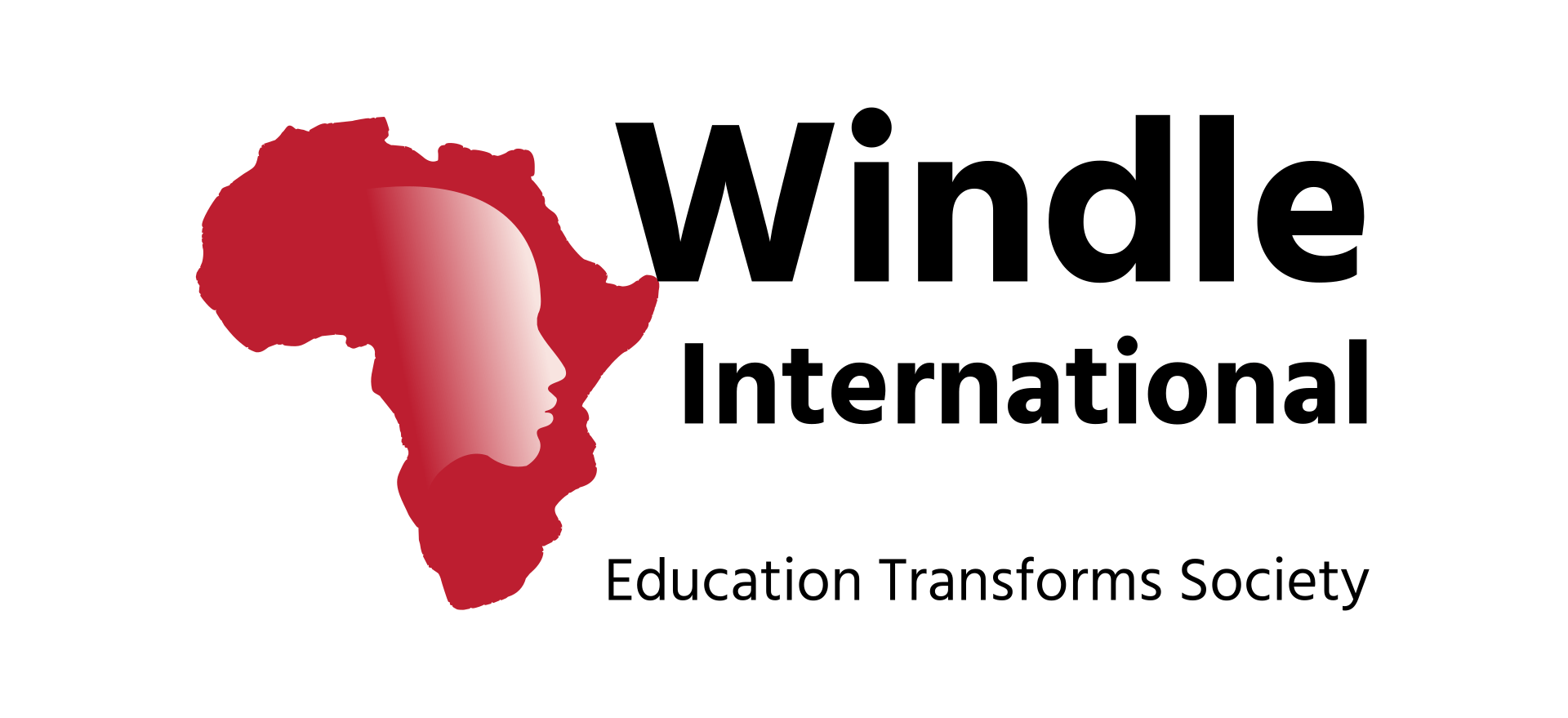Building inclusive education
Constructing safe learning environments for inclusive and equitable primary education in Uganda's Refugee Settlements
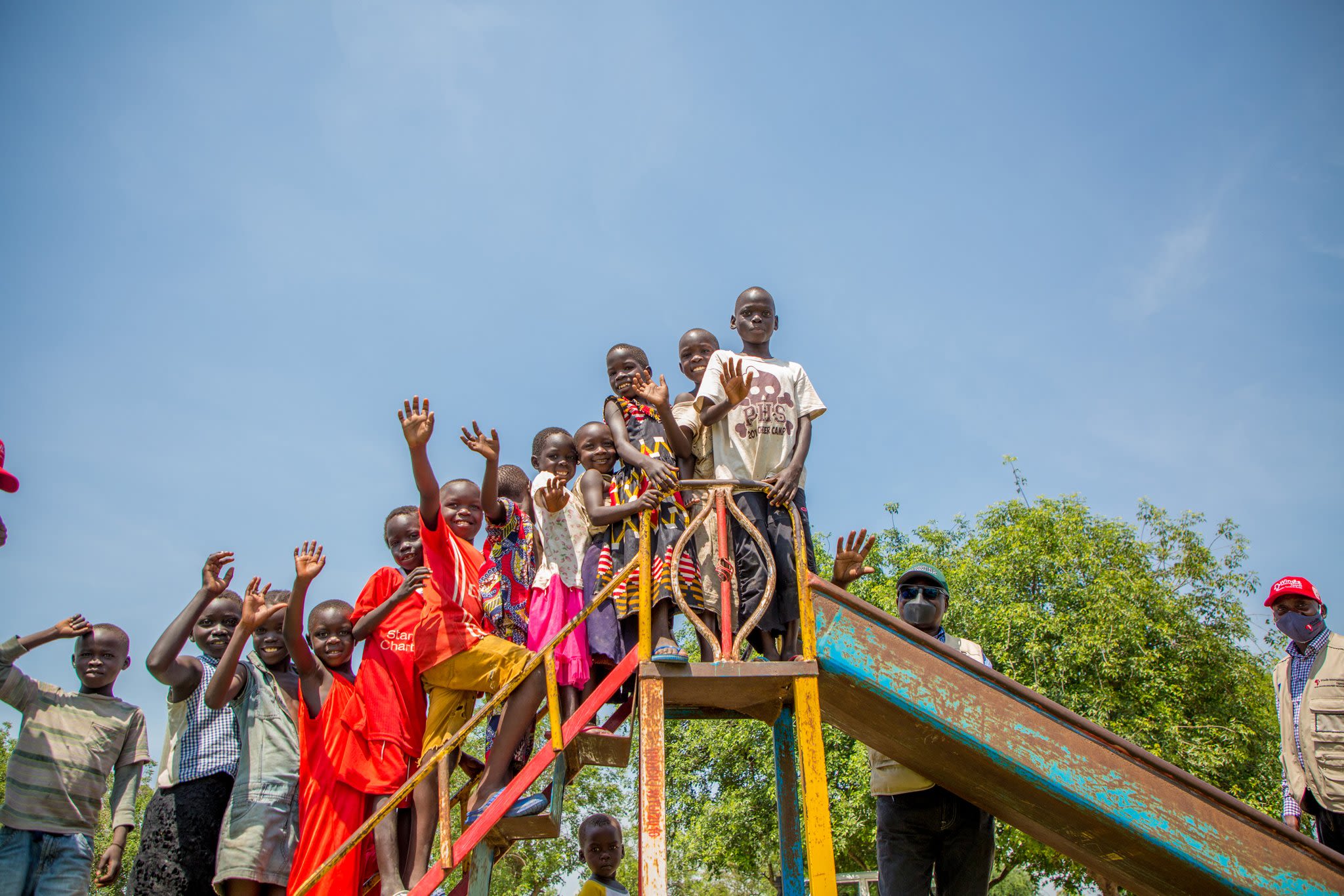
Uganda hosts more refugees than any other country in Africa. Over half of them are children.
Most of the 1,482,101 refugees hosted by Uganda are from South Sudan, the Democratic Republic of the Congo, Burundi and Somalia. Whilst it is widely recognised as having one of the most progressive refugee policies in the world, the reality for the many arriving and living in the country is overcrowding, poverty, and limited access to safe sanitation and basic services. Refugees in Uganda have the right to work, but there are still few livelihood opportunities.
And since 2020, the ongoing humanitarian crises in the region have been exacerbated by the COVID-19 pandemic.
Fifty-nine percent (59%) of Uganda's refugees are under 18 years old. They are vulnerable to physical, emotional and sexual violence, forced labour, and child marriage. For these children, education represents not only a possible route out of their situation, but, crucially, hope for a brighter future.
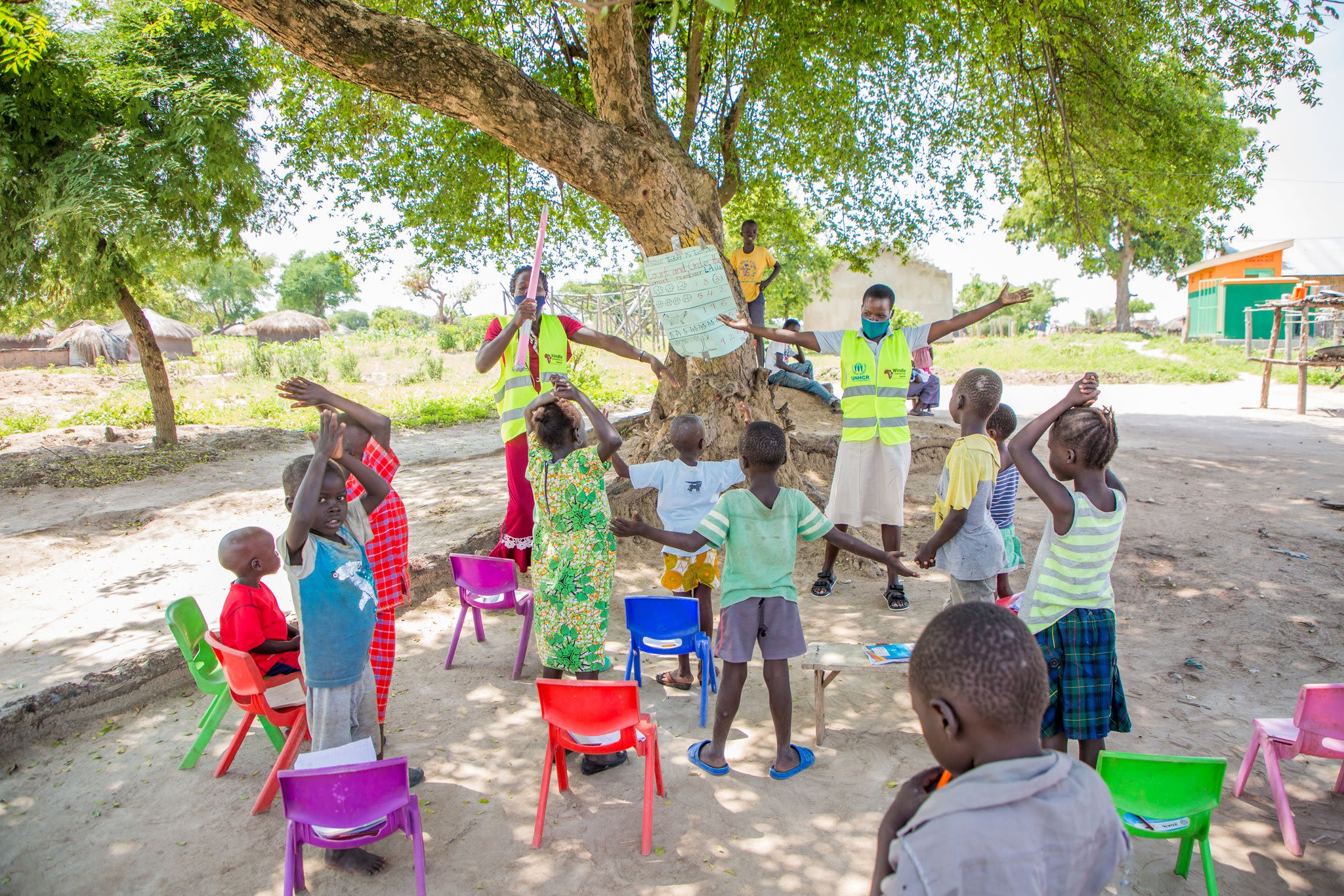
The problem is that refugee-hosting schools in Uganda are in crisis due to severe overcrowding and unsafe facilities.
Where education can continue, it is often in an unsafe or unsuitable learning environment; in Uganda, this is affecting hundreds of thousands of children right now. Despite its celebrated model of establishing a universal primary education policy that includes refugees, Uganda’s Ministry of Education has warned there are still huge challenges (Education Plan for Refugee and Host Community, 2018). Refugee hosting schools lack the capacity to provide a good quality learning environment for the large numbers of children needing education, particularly as ongoing conflicts and crises lead to more children and families seeking refuge in Uganda.
Overcrowded classrooms mean poor learning conditions and lead to lower educational outcomes. Children are struggling to learn in makeshift and/or overcrowded classrooms, where a lack of fresh air, high noise levels and high temperatures severely impact children's ability to concentrate.
Teachers struggle to attend to children's needs in overcrowded classrooms. Despite the national recommended ratio being 1 teacher for 45 children, this is regularly exceeded. Some schools report one teacher for 132 children, which is almost three times the recommended ratio.
Without clean, safe and separated toilets for boys and girls, children - particularly girls - are discouraged from attending school regularly. And without access to sanitary facilities, children regularly suffer from diarrhoea and dysentery.
In the Bidibidi refugee settlement, for example, what in name is the Yangani Primary School is, in reality, a patchwork of tattered tents.
The holes in the makeshift plastic classrooms means hot air and dust are blown into the learning environment. There are just 38 teachers for 5,000 students.
In the Palabek refugee settlement, the Canaan Primary School has only 10 latrines for its 1,868 pupils. And in Ogili Hill Primary School, each desk is shared by 5 children.
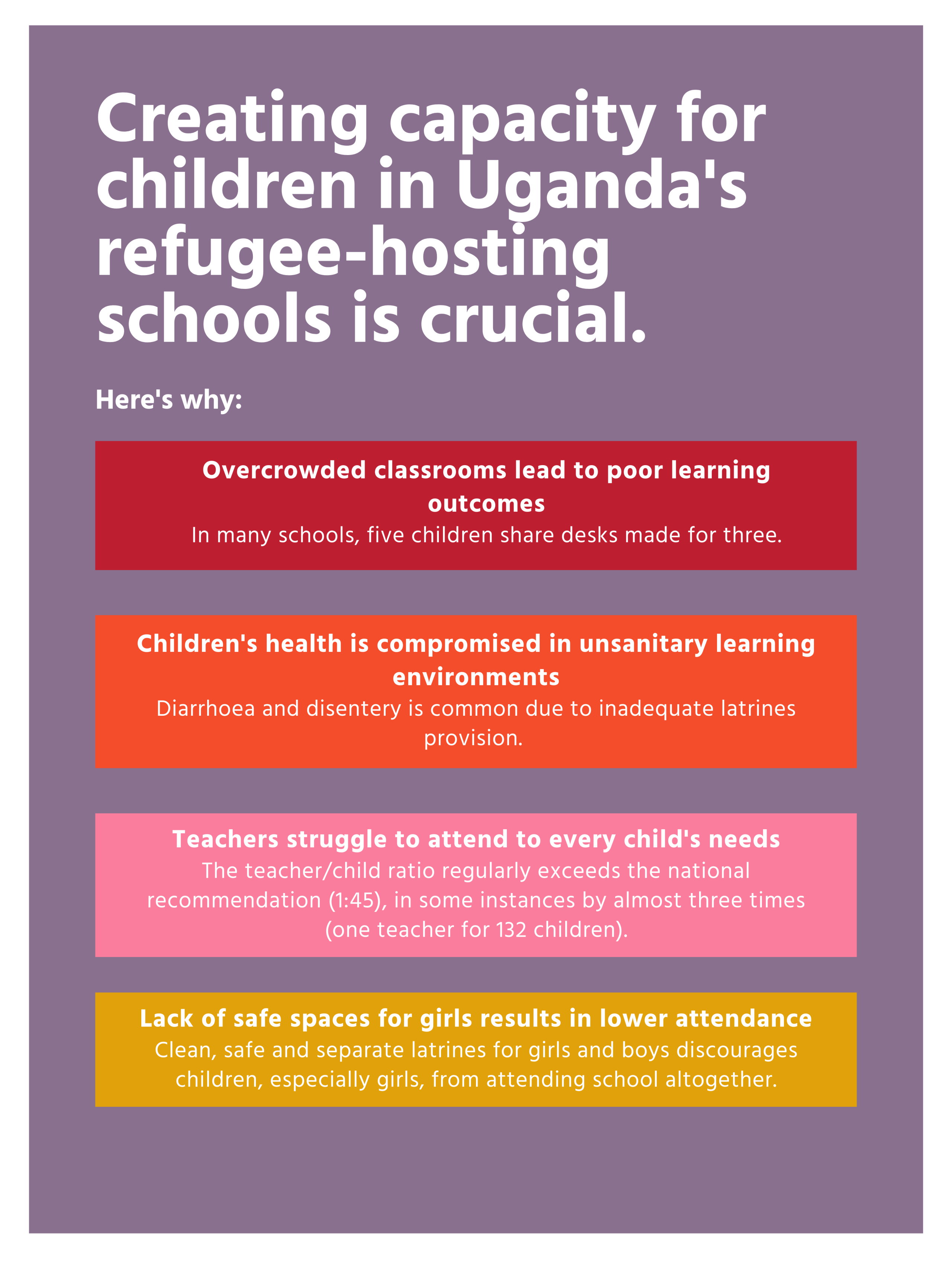
What we hope to achieve
Our objectives
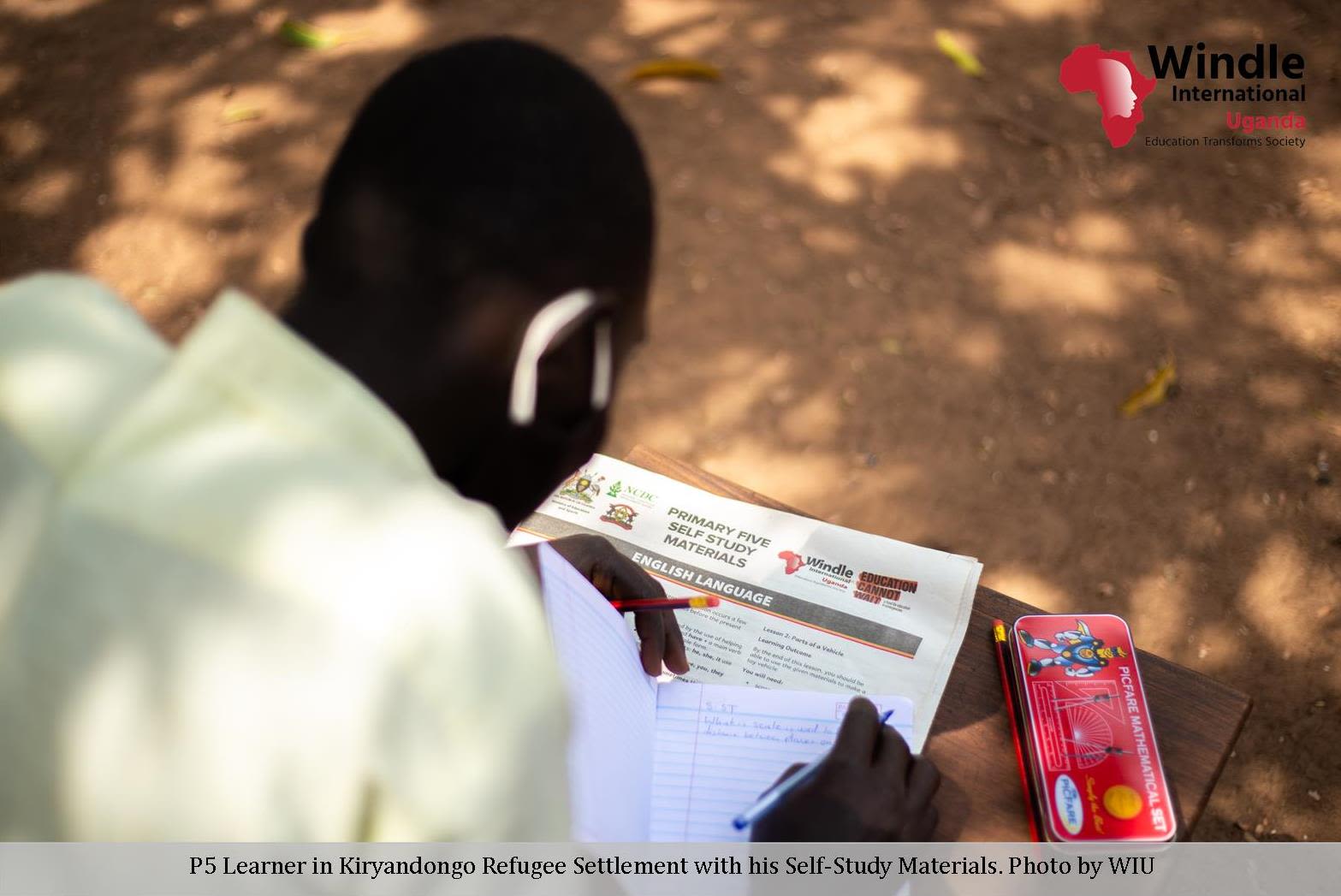
We want to give conflict-affected children the chance to build successful futures for themselves, their families and their communities.
Our objective is to make sure children can create strong foundations for life, by helping them to get a good quality primary education.
We aim to build safe and adequate school infrastructure to benefit all children enrolled in primary schools in 12 refugee settlements in Uganda (Bidbidi, Palorinya, Adjumani, Imyepi, Rhino, Palabek, Kiryandongo, Kyangwali, Kyaka II, Rwamwanja, Oruchinga and Nakivale) The project will improve schools’ capacity to comply with the national education requirements, and offer standard primary education environments for both refugee and host community pupils.
The project will increase the enrolment and retention rate, and will improve the integration of girls and children with special needs. The goals are to improve learning outcomes and protection, and to ensure safe and sanitary learning environments for children in emergencies.
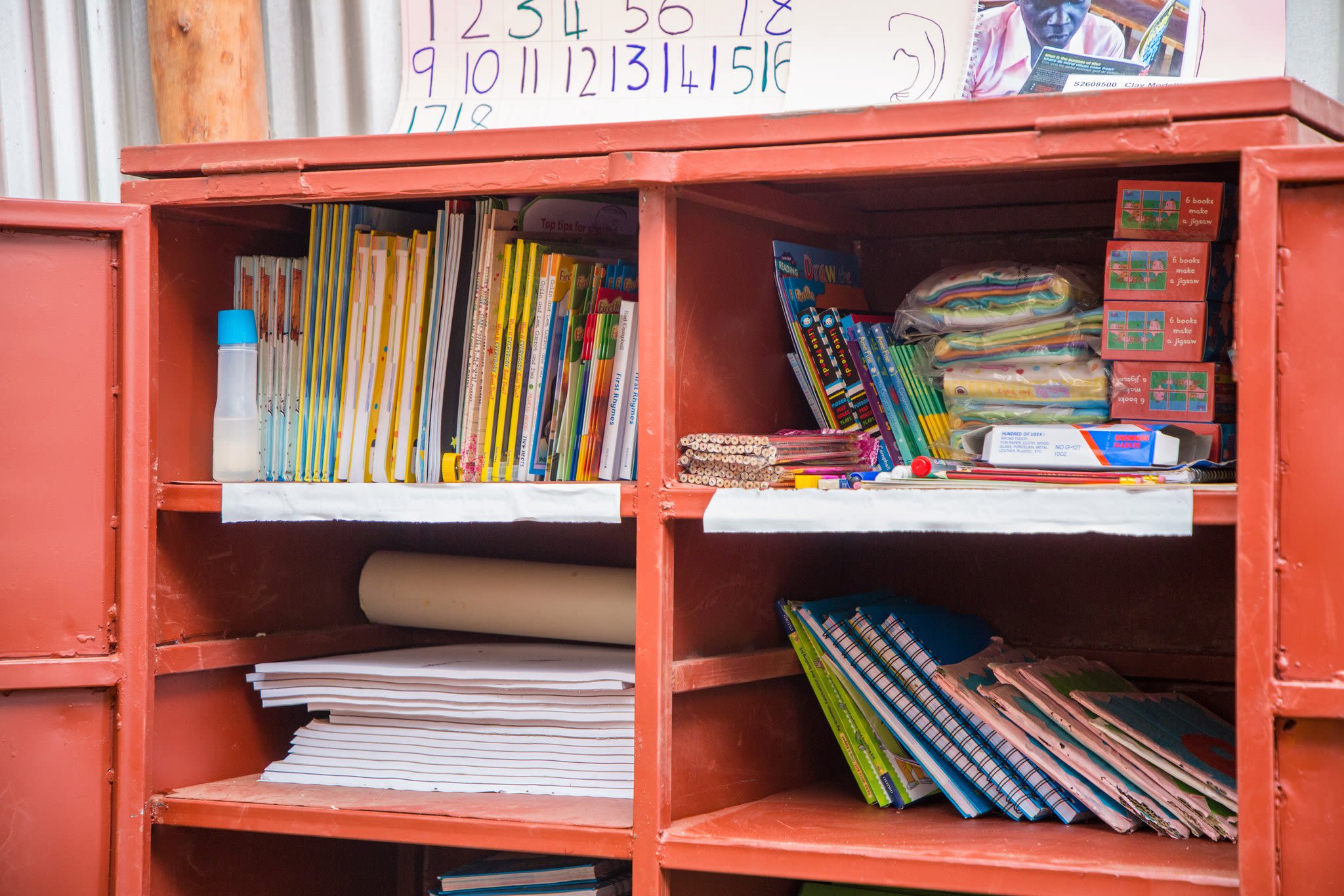
Our approach
Construction of classrooms
By 2024, we aim to have constructed 1,000 classrooms to reduce the severe overcrowding in Uganda's refugee-hosting schools' classrooms.
Each classroom will be equipped with 20 desks and a learning board. They will be constructed collaboratively with communities, and in co-operation with the education sector. Not only will classrooms be used for regular lessons, but they will be available for teacher training, remedial and catch-up classes, school board and parent-teacher association meetings.
Construction of latrines
By 2024, we aim to have constructed 200 gender-segregated and accessible latrines in primary schools. Dividing walls will make sure children have privacy, and that girls feel confident and safe being at school. Ramps and mobility aids will make sure latrines are accessible for children with disabilities. An important element of this approach will be to use local materials, mobilised by the community themselves, in the construction of the latrines.
Windle International Uganda will work closely with school administration, the Ministry of Education and non-governmental partner organisations to make sure that the project aligns with the national education strategy and sanitation standards. The facilities will be maintained by the school, which includes Windle administrators and teachers who are part of the local refugee community.
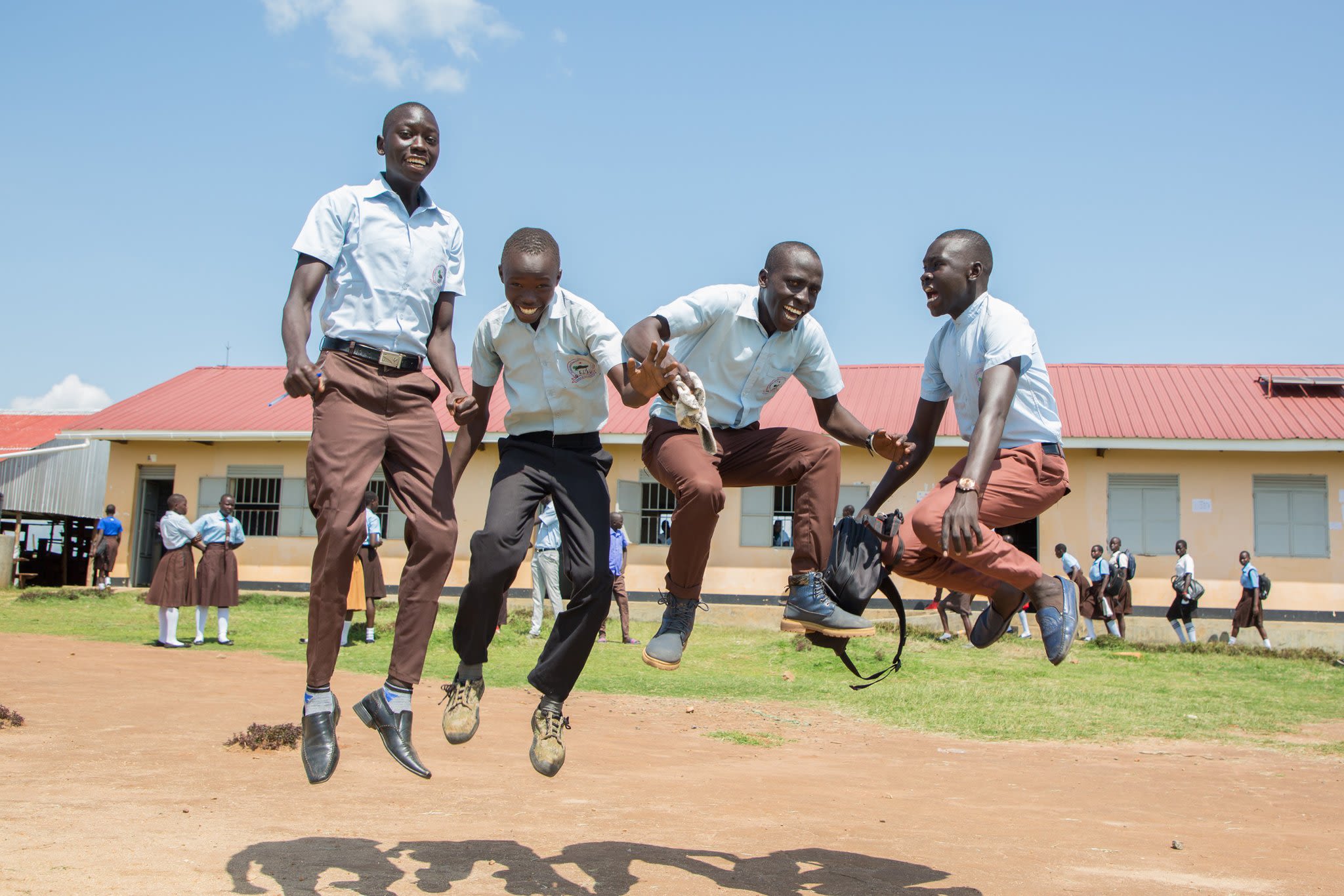
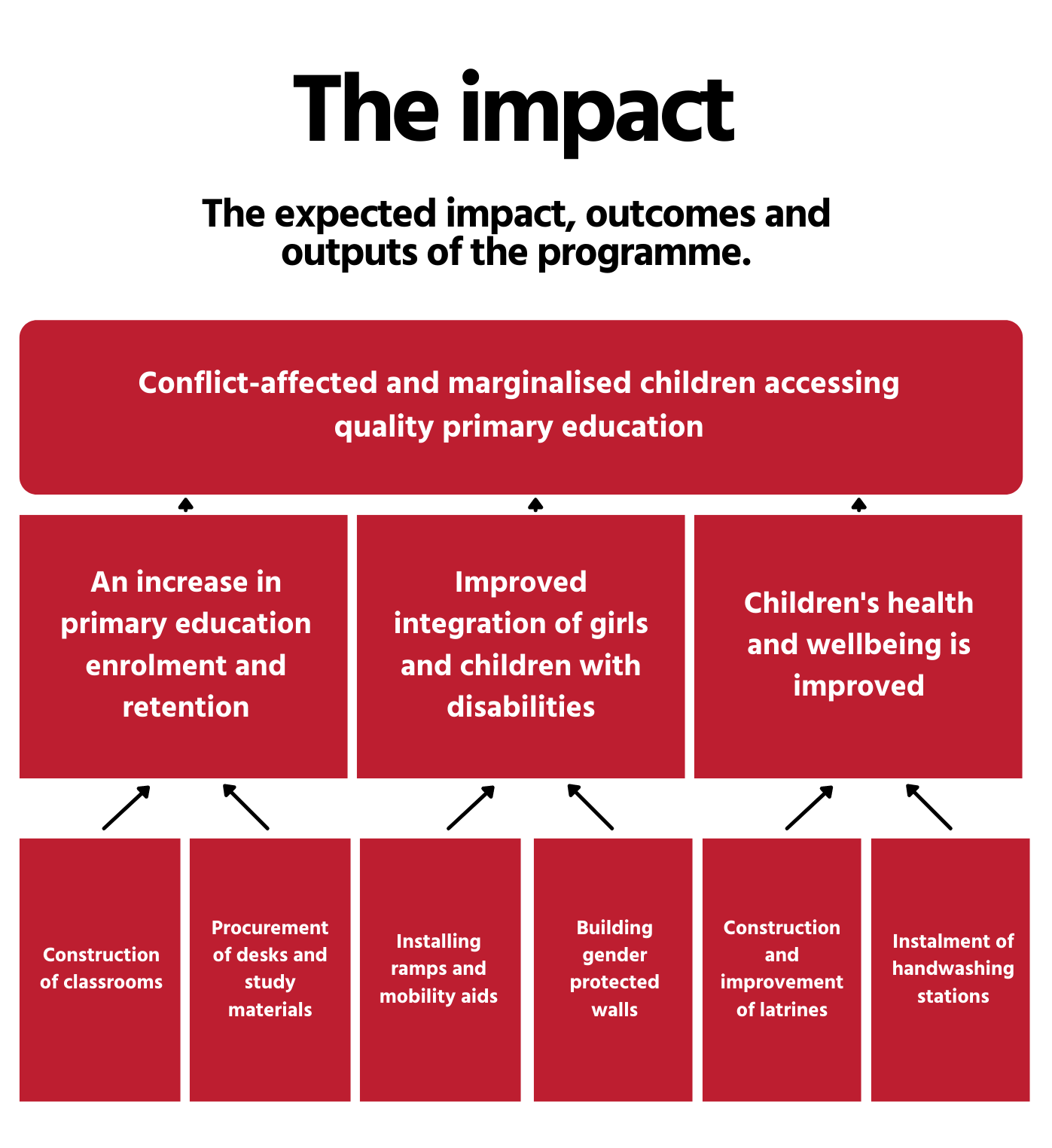
About us
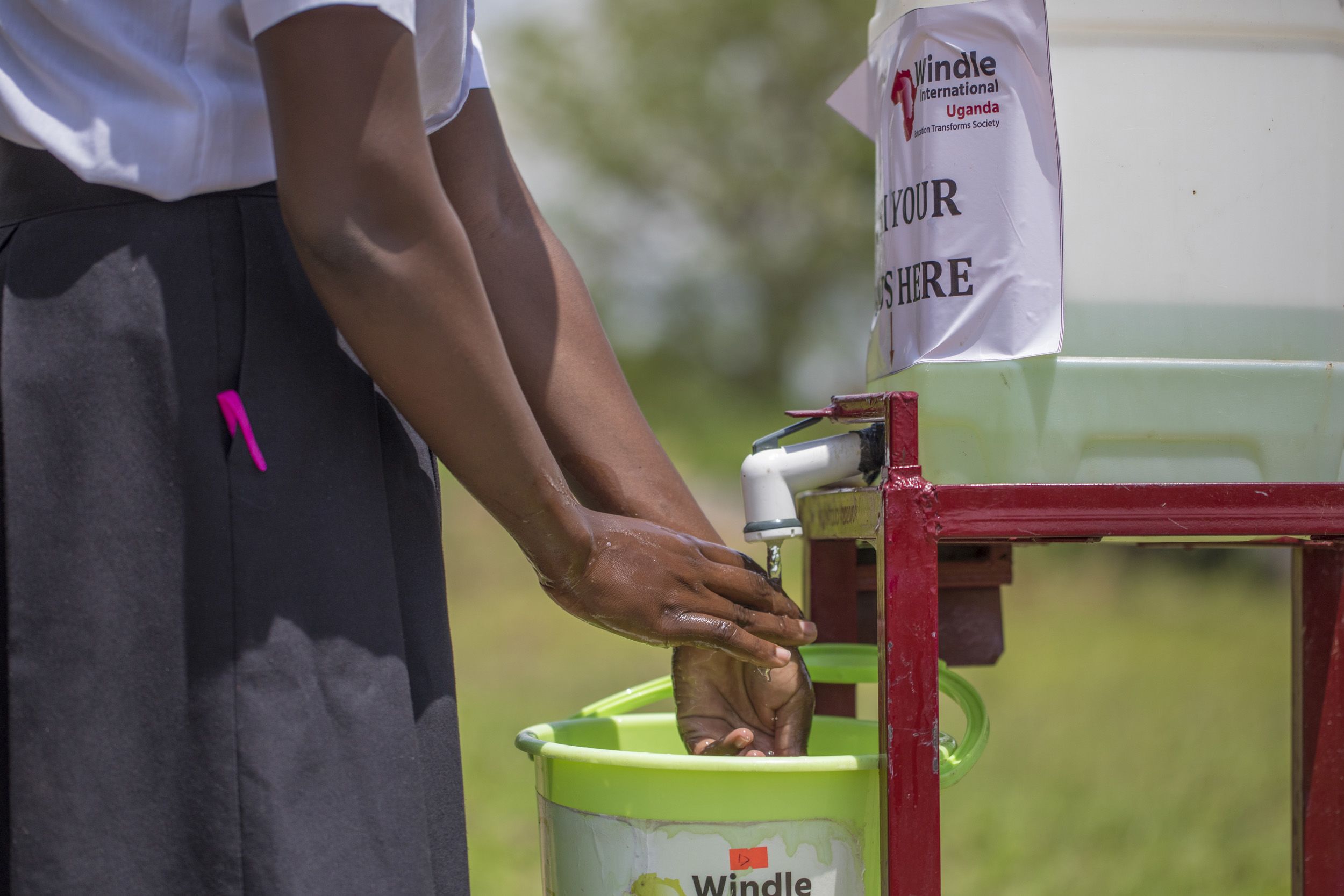
Every year Windle International helps over a million refugees and people affected by conflict to access quality education.
We are an international non-governmental organisation (NGO) with over forty years of experience, based in and operating across eastern Africa, the UK, the US and Canada.
We empower refugees and people affected by conflict and marginalisation to achieve their academic potential, and contribute to sustainable development, by acting as a lead provider of quality education and training. From managing primary and secondary schools to providing higher education scholarships and offering vocational training, we help people to succeed at every educational level.
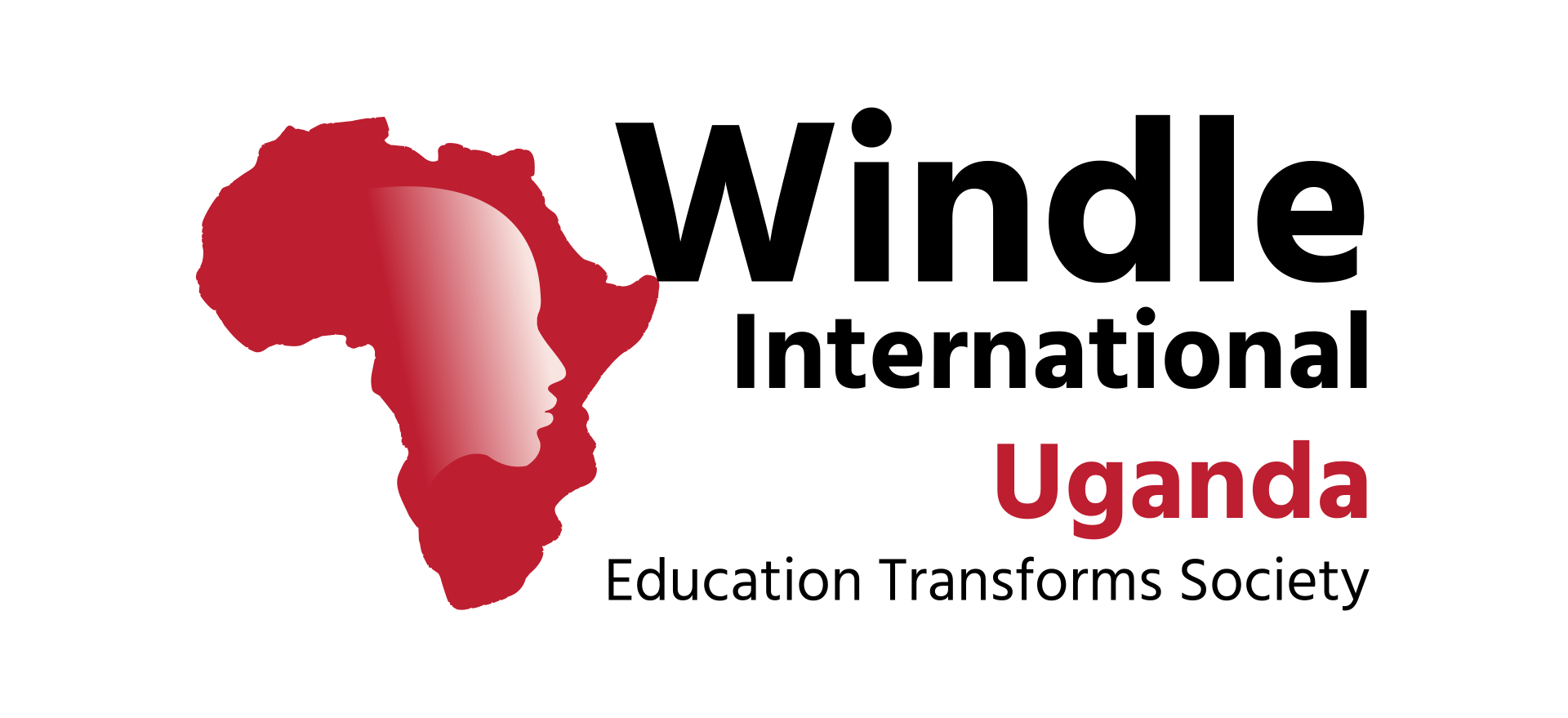
Windle International Uganda (WIU) has been a leader in providing access to all levels of education and vocational training for conflict-affected and marginalised Africans since 1996. We have a vast experience of delivering impactful programmes, including administering schools at pre-primary, primary and secondary level on behalf of UNHCR.
From building classrooms, latrines and teacher accommodation, to hiring teachers and providing all the materials children need to learn, we manage every aspect of running schools in 12 refugee settlements in Uganda. We also run early childhood development centres for children aged 3-5 years, provide vocational training, manage technology access centres for communities, and manage a large number of scholarship programmes.
In 2020, we have completed the construction of 18 classrooms in Nakivale refugee settlement under the Education Quality Improvement Project funded by LDS. The project is intended to reach over 10,255 learners in Nakivale, including 6,102 refugees and 4,153 nationals. We have also nuilt 6 units of teachers’ accommodation (4 units in Kiryandongo and 2 units in Kyaka II) hosting national teachers.
We have also constructed 24 stances of latrines (20 in Nakivale, 2 in Kyaka II and 2 in Kiryandongo) with funds from ECW. WIU received support from the InTouch Global Foundation to protect and safeguard children in Rhino Camp and Oruchinga in respect of appropriate health, safety and sanitation measures. WIU set up appropriate measures before the reopening of schools after they were closed in March 2020 due to the Covid-19 pandemic. The schools received foot-operated hand washing equipment, temperature guns, and liquid soap.
Are you interested in supporting this programme?
Request the full programme proposal at:
info@windleinternational.org

